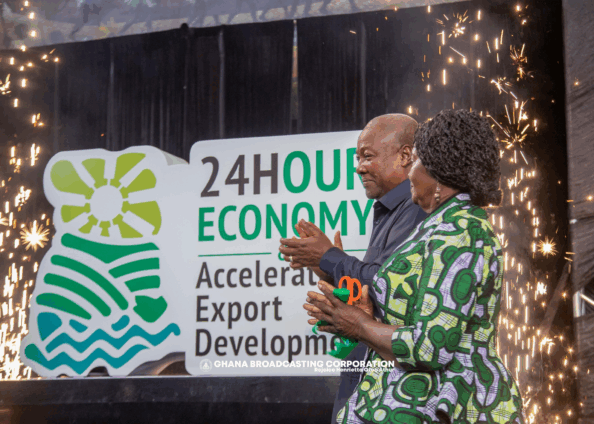adverts
The Food and Beverages Association of Ghana (FABAG) has cautioned that the proposed upward review of electricity tariffs by the Public Utilities Regulatory Commission (PURC) will devastate businesses, worsen household hardship, and undermine the government’s flagship 24-hour economy policy.
In a strongly worded statement, the Association described the move as “a recipe for disaster”, stressing that the business sector—particularly food and beverages—is already on the brink of collapse.
“Though food is a necessity, sales in the food and beverages sector have dropped by 70% in recent times. Businesses are really struggling, and their woes appear to be exacerbated by the recent depreciation of the Ghanaian cedi,” the statement said.
adverts
FABAG warned that higher tariffs would directly harm Ghanaian families already burdened by economic hardship.
“Tariff increases will hit Ghanaian families where it hurts most—their daily survival. For low- and middle-income households, electricity and water bills already consume a large share of disposable income. Any further increase will force families to choose between keeping the lights on and putting food on the table,” it said.
The group added that the hike would deepen energy poverty, especially for vulnerable groups such as women-led households and the rural poor.
FABAG further cautioned that tariff hikes would ignite inflation across multiple sectors.
“Upward adjustment of utilities, especially ECG tariffs, combined with the current depreciation of the cedi, will serve as a major inflationary wildfire. Utilities are the foundation of the cost structure of food, transport, and housing, which are Ghana’s inflation drivers. An upward adjustment of tariffs will fuel a fresh round of price hikes for bread, kenkey, water, and beverages,” it warned.
The Association stressed that cold store operators, small restaurants, and transporters would inevitably pass on higher utility costs to consumers, triggering widespread hardship and tighter monetary policy that could slow growth.
According to FABAG, tariff hikes would devastate small and medium enterprises (SMEs) already struggling with thin margins.
“Utility tariff hikes, especially ECG, will wipe out the current thin margins of SMEs and trigger layoffs and factory downsizing. Indeed, any tariff adjustment upwards will seriously put jobs and enterprises on the line,” the statement cautioned.
It added that Ghana’s competitiveness under the African Continental Free Trade Area (AfCFTA) could be undermined by higher production costs.
“Higher production costs make Ghanaian products uncompetitive compared to imports from countries with cheaper energy. This will discourage investment and slow down Ghana’s industrialisation drive, especially the 24-hour economy,” it said.
FABAG accused the Electricity Company of Ghana (ECG) of inefficiency and poor service delivery, citing “non-functional prepaid meters” and what it described as workers who have “literally privatised their desks.”
The group demanded that utility tariff adjustments be linked to performance and efficiency gains.
“Every tariff increase not matched by efficiency gains is a direct attack on jobs, livelihoods, and Ghana’s industrial base. The utilities must first reduce system losses, improve collections, change the attitude of staff, and cut waste before passing costs to consumers,” FABAG argued.
It urged PURC to expand lifeline tariffs for low-income households and introduce support measures for businesses in the food and beverage sector.
FABAG concluded with a strong appeal to regulators to prioritise people over inefficiency.
“Ghanaians cannot continue to pay for inefficiency. Every cedi lost to poor collections, outdated infrastructure, and system leakages should not be transferred to the pockets of hard-working citizens and struggling businesses. A tariff increase without accountability is not reform — it is punishment.
We urge PURC to put the people first — phase adjustments, demand efficiency, protect the poor, and support Ghanaian businesses. That is the only way to balance cost recovery with economic survival.”
Click the link Puretvonline.com | WhatsApp Channel to join the WhatsApp channel
GOT A STORY?
Contact/WhatsApp: +233243201960 or manuelnkansah33@gmail.com


